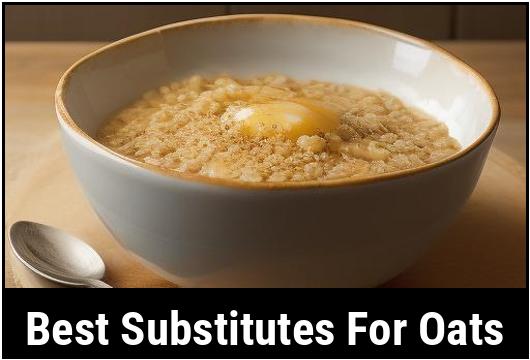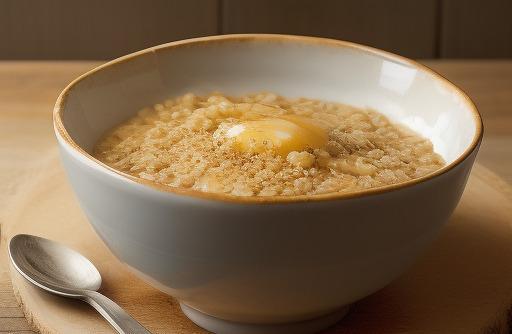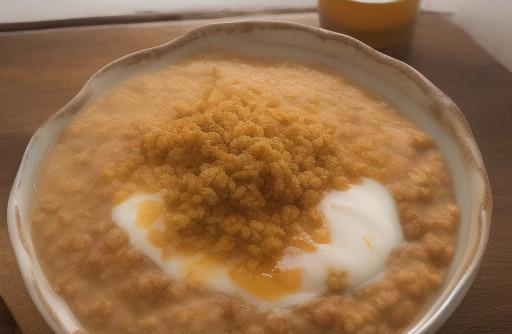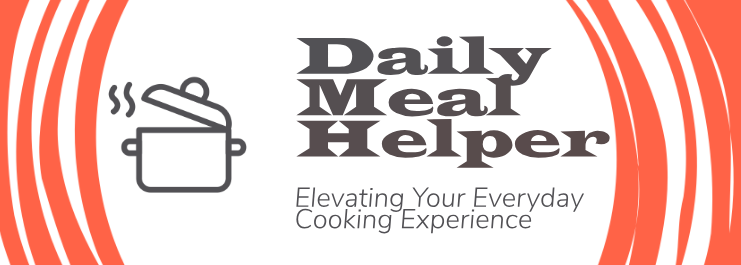- You are here:
- Home »
- Food Substitutes
- » Best Substitutes For Oats
Best Substitutes For Oats

Oats are a versatile and nutritious grain that is widely consumed around the world. They are commonly used in baking, cooking, and as a base for breakfast cereals and porridges. However, there may be situations where you need to find a substitute for oats due to dietary restrictions, allergies, or simply because you want to try something new. In this article, we will explore the best substitutes for oats that can be used in a variety of recipes.
Key Takeaways
- Oats are a versatile grain commonly used in baking and cooking.
- Finding a substitute for oats may be necessary for dietary restrictions or allergies.
- There are several substitutes for oats, including quinoa flakes, amaranth flakes, and rice flakes.
- The right substitute for oats will depend on the recipe and desired texture.
Why You Need A Substitute For Oats
There are several reasons why you may need to find a substitute for oats. Some of the most common reasons include dietary restrictions, allergies, and personal preferences. Here are a few situations where a substitute for oats may be needed:
-
Gluten-Free Diet: Oats are naturally gluten-free, but they can often be cross-contaminated with gluten during processing. Therefore, individuals with celiac disease or gluten intolerance may need to find a gluten-free substitute for oats.
-
Allergies: Some individuals may have an allergy to oats or be allergic to a protein found in oats called avenin. In such cases, finding an alternative grain or grain-free substitute is essential.
-
Variety: You may simply want to try something new and experiment with different grains or alternatives to oats in your recipes.
Types Of Substitutes For Oats

When it comes to finding a substitute for oats, there are several options available. These substitutes can be grains, flakes, or even seeds that provide similar texture and nutritional benefits. Here are some common types of substitutes for oats:
-
Quinoa Flakes: Quinoa flakes are made from flattened and rolled quinoa seeds. They have a similar texture to rolled oats and can be used as a one-to-one replacement in recipes. Quinoa flakes are gluten-free and packed with protein, making them an excellent substitute for oats.
-
Amaranth Flakes: Amaranth flakes are made from flattened and toasted amaranth seeds. They have a slightly nutty flavor and a crunchy texture, which can add excitement to your recipes. Amaranth flakes are gluten-free and rich in fiber, making them a healthy substitute for oats.
-
Rice Flakes: Rice flakes, also known as poha or flattened rice, are thin flakes made from parboiled or beaten rice. They have a delicate texture and can add a mild, nutty flavor to your dishes. Rice flakes are gluten-free and widely used in Indian cuisine as a substitute for oats.
-
Quinoa: If you prefer a whole grain substitute for oats, quinoa can be a great option. It is a highly nutritious grain that is packed with protein and fiber. Cooked quinoa can be used in place of oats in recipes like porridges, muffins, and granola bars.
-
Chia Seeds: Chia seeds can be ground into a fine powder and used as a substitute for oats in recipes. They provide a similar gelatinous texture when mixed with liquid, which is ideal for making smoothies, puddings, and overnight oats. Chia seeds are gluten-free and rich in omega-3 fatty acids and fiber.
-
Buckwheat Groats: Buckwheat groats are the hulled seeds of the buckwheat plant and can be used as a gluten-free substitute for oats. They have a slightly earthy flavor and a chewy texture when cooked. Buckwheat groats can be used in recipes such as granola, pancakes, and porridges.
Best Substitutes For Oats
Now let’s explore the best substitutes for oats based on different criteria:
-
Creaminess and Texture: If you are looking for a substitute that provides a similar creamy texture to oats, quinoa flakes and rice flakes are excellent options. They can be cooked and used in recipes calling for oats, such as overnight oats or oatmeal cookies.
-
Nutritional Value: Quinoa is a highly nutritious grain that can be used as a whole grain substitute for oats. It is packed with protein, fiber, and other essential nutrients. Chia seeds are also a great substitute that offers omega-3 fatty acids and fiber.
-
Gluten-Free Options: For individuals following a gluten-free diet, quinoa flakes, amaranth flakes, rice flakes, and buckwheat groats are all fantastic substitutes. They do not contain gluten and can be easily incorporated into your favorite recipes.
-
Variety and Flavor: Amaranth flakes and buckwheat groats can add a unique taste and texture to your dishes. Amaranth flakes carry a slightly nutty flavor, while buckwheat groats have an earthy taste. These substitutes can provide a delicious twist to your oat-based recipes.
Choosing The Right Substitute For Oats
Choosing the right substitute for oats is essential to ensure that your recipe turns out as expected. Consider the following factors when selecting a substitute:
-
Recipe Requirements: Take into account the specific requirements of your recipe. Some recipes may call for oats that are cooked, while others may require oats to be used as a flour or flakes. Choose a substitute that best mimics the texture and flavor of oats based on your recipe’s needs.
-
Allergies and Dietary Restrictions: If you or someone you are cooking for has allergies or dietary restrictions, ensure that the substitute you choose is suitable. For example, if you need a gluten-free substitute, select options like quinoa flakes or rice flakes that do not contain gluten.
-
Flavor and Texture: Consider the flavor and texture that the substitute will bring to your dish. Some substitutes may have a slightly different taste or texture compared to oats. If you are open to experimenting with flavors, alternatives like amaranth flakes or buckwheat groats can provide an exciting twist.
-
Availability: Check the availability of the substitute in your local grocery store or online. Opt for substitutes that are easily accessible to you, ensuring that you can use them whenever you need to substitute oats.
Cooking With Substitutes For Oats

Cooking with substitutes for oats is quite similar to using oats themselves. However, you may need to make a few adjustments to achieve the desired results. Here are some tips for cooking with substitutes for oats:
-
Follow Recipe Ratios: When substituting oats, try to follow the same ratios as the recipe calls for. This will help maintain the correct liquid-to-grain balance and ensure the right texture in your dish.
-
Adjust Cooking time: Substitutes like quinoa flakes, rice flakes, and amaranth flakes may cook faster than oats. Keep an eye on the cooking time and adjust as needed to prevent overcooking.
-
Experiment with Flavors: Since substitutes for oats may have slightly different flavors, feel free to experiment with additional ingredients to enhance the taste. For example, adding cinnamon, vanilla, or fruits can contribute to a delicious flavor profile.
-
Consider Binding Agents: Some substitutes may not have the same binding properties as oats. If the recipe requires oats to act as a binder, you may need to add an alternative binding agent such as mashed bananas, applesauce, or eggs.
Recipes Using Substitutes For Oats
Now, let’s explore some delicious recipes that can be made using substitutes for oats:
Quinoa Flake Porridge
-
Ingredients:
- 1 cup quinoa flakes
- 2 cups milk or non-dairy milk
- 1 tablespoon honey or maple syrup
- 1/2 teaspoon vanilla extract
- Optional toppings: fresh fruits, nuts, or seeds
-
Instructions:
- In a saucepan, combine the quinoa flakes and milk. Bring to a gentle boil over medium heat, stirring occasionally.
- Reduce the heat to low and simmer for 3-5 minutes until the porridge thickens.
- Stir in the honey or maple syrup and vanilla extract.
- Remove from heat and let it sit for a minute.
- Serve the porridge topped with your favorite toppings.
Rice Flake Vegan Pancakes
-
Ingredients:
- 1 1/2 cups rice flakes
- 1 cup all-purpose flour or gluten-free flour
- 2 tablespoons sugar or sweetener of choice
- 2 teaspoons baking powder
- 1/2 teaspoon salt
- 1 1/2 cups non-dairy milk
- 2 tablespoons oil
-
Instructions:
- In a mixing bowl, combine the rice flakes, flour, sugar, baking powder, and salt.
- In a separate bowl, whisk together the non-dairy milk and oil.
- Pour the wet ingredients into the dry ingredients and stir until just combined. Do not overmix; a few lumps are acceptable.
- Heat a non-stick pan over medium heat and lightly grease with oil or cooking spray.
- Pour 1/4 cup of batter onto the pan for each pancake.
- Cook until bubbles form on the surface, then flip and cook for another minute or until golden brown.
- Serve hot with your favorite toppings, such as fruits, syrup, or nut butter.
Storage And Shelf Life Of Substitutes
It is important to store your substitutes for oats properly to maintain their quality and freshness. Here are some storage guidelines:
-
Quinoa Flakes, Amaranth Flakes, Rice Flakes: Store these substitutes in an airtight container in a cool, dry place away from direct sunlight. When stored correctly, they can last up to 6 months.
-
Quinoa, Buckwheat Groats: Keep these substitutes in a sealed container in a cool, dark pantry or refrigerator. They can last for up to 1 year if stored properly.
-
Chia Seeds: Chia seeds should be stored in an airtight container in a cool, dry place. They have a long shelf life of up to 2 years.
Conclusion
While oats are a staple ingredient in many recipes, there are several excellent substitutes available for those who need or want to explore alternative options. Whether you are following a gluten-free diet, have allergies, or simply want to try something new, quinoa flakes, amaranth flakes, rice flakes, quinoa, chia seeds, and buckwheat groats are all fantastic substitutes for oats. By considering the recipe requirements, allergies, flavor preferences, and cooking techniques, you can easily replace oats in a variety of dishes while maintaining the desired texture and taste. So why not get creative in the kitchen and experiment with these substitutes to add diversity and excitement to your meals?
Pro tip: To enhance the flavor of your dishes, toast the quinoa flakes, amaranth flakes, or rice flakes in a dry skillet over medium heat for a few minutes before using them. This will bring out their natural nuttiness and add a delicious depth of flavor.
FAQS
What Are The Best Substitutes For Oats?
If you’re looking to eliminate or minimize oats in your diet, some of the best substitutes include quinoa, amaranth, millet, rice flakes, and buckwheat groats. All of these options are gluten-free and offer a similar texture and flavor profile to oats.
Can Quinoa Be Used As A Substitute For Oatmeal?
Yes, quinoa is an excellent substitute for oatmeal. Not only is it gluten-free and high in protein, but it also has a similar texture and nutty flavor. You can prepare quinoa in much the same way as oatmeal, either on the stovetop or in the microwave, and add toppings such as fruit and nuts as desired.
How Can Amaranth Be Used As A Substitute For Oats?
Amaranth is another gluten-free, protein-rich grain that can be used as a substitute for oats in many recipes. It has a slightly more earthy taste and a slightly different texture, but it can be cooked in much the same way as oatmeal. Mix it with milk or water, bring it to a boil, and simmer until soft and creamy.
What Are The Benefits Of Using Rice Flakes As A Substitute For Oats?
Rice flakes are a great substitute for oats, especially if you’re looking for a mild, neutral flavor that won’t overpower other ingredients. They’re also gluten-free and low in fat, making them a good choice for people with specific dietary needs. Rice flakes can be used in many recipes that call for rolled oats, such as porridge, granola, and baked goods.
Why Are Buckwheat Groats A Good Substitute For Oats?
Buckwheat groats are a gluten-free, high-fiber grain that can be a good substitute for oats, especially if you’re looking for a heartier texture. They have a nutty flavor and can be prepared in much the same way as oats. Buckwheat groats can also be used in recipes that call for overnight oats, as they absorb liquids well and become tender and creamy when soaked.
Sources
About the Author Jenny
I'm Jenny, a housewife with an unwavering passion for food. My culinary journey began with my grandmother's kitchen, and it's now a full-fledged food blog. I've turned my love for cooking into a creative outlet, sharing recipes and stories with a global community of fellow food enthusiasts. It's proof that being a housewife can also mean pursuing your passions and savoring life's delectable moments.
